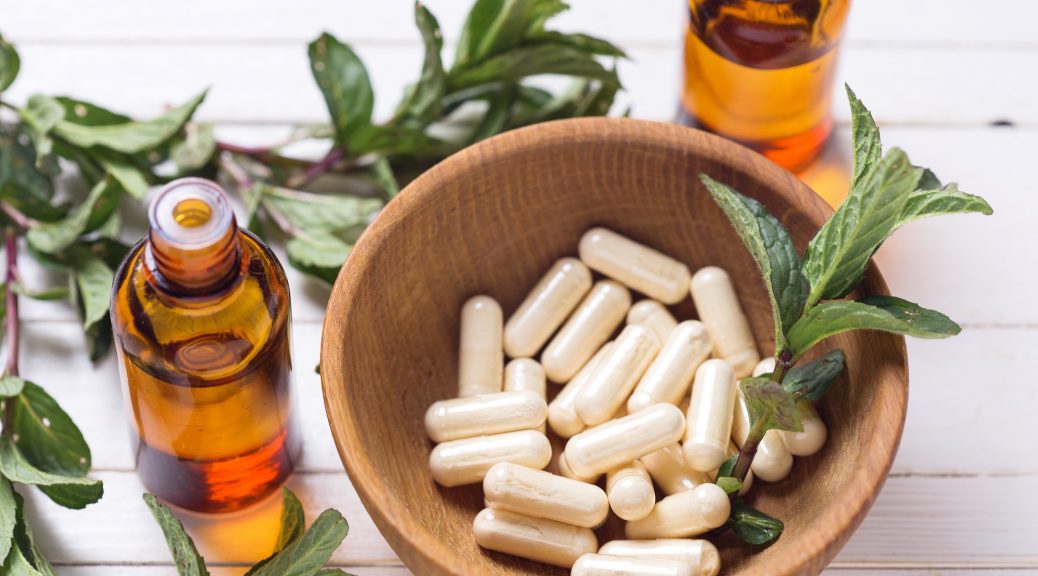
Supplements for IBS
By medical nutritionist Dr Sarah Brewer, an expert in food, herbs and supplements
Irritable Bowel Syndrome (IBS) affects as many as one in three people at some point in their life. Symptoms can include painful abdominal cramps, bloating and excess wind, as well as a tendency towards constipation or diarrhoea.
What causes IBS?
The underlying cause of IBS is not well understood, but it is often triggered by food poisoning or taking antibiotics. Symptoms may relate to imbalances in bowel bacteria and to gut-brain interactions which increase awareness of bowel contractions or increase sensitivity to pain.
How is it diagnosed?
There is no simple test to confirm IBS, but guidelines known as the Rome IV Criteria allow GPs to made the diagnosis based on experiencing recurrent abdominal pain and changes in bowel habit. It is not a diagnosis you should make yourself as other conditions can cause similar symptoms and may need different investigations and treatment. Always seek medical advice if you experience a change in bowel habit that continues for more than a week or two.
Self-help
Keep a food diary to help identify any individual food triggers such as wheat, gluten, lactose, yeast, excess sugar, alcohol, caffeine or artificial sweeteners. Symptoms may not appear until 48 hours after eating the culprit food, however. Australian dietitians have found that a diet which is low in fructose, lactose and other sugars, and sweeteners can help – this is known as a low FODMAP diet. FODMAP stands for Fermentable Oligosaccharides, Disaccharides, Monosaccharides And Polyols – a bit of a mouthful – which are a group of sugars and fibres that are fermented in the lower bowel to produce excess gas.
Supplements for IBS
Clinical trials show that peppermint oil is more effective for reducing intestinal spasms than fibre or prescribed antispasmodic drugs such as mebeverine.
Probiotics are key. Researchers have shown that taking a daily multi-strain, non-dairy probiotic drink (Symprove) can relieve pain, constipation and diarrhoea within four weeks.
Magnesium relaxes muscle spasm and has a laxative effect when taken by mouth. If you don’t want the laxative effect, use a magnesium oil, cream or lotion rubbed into the skin. (eg betteryou.com).
Globe artichoke supplements improve IBS symptoms by an average of 71% within ten days (eg from Healthspan.co.uk).
Aloe vera juice has a soothing effect on the bowel. Select products that are declared aloin-free to avoid worsening bowel spasms.
Turmeric is used in ayurvedic medicine to treat irritable bowel syndrome, with two thirds of those taking it reporting an improvement in symptoms after treatment. Some studies have not shown a benefit, however.

About Dr Sarah Brewer
Dr Sarah Brewer is a medical nutritionist and an expert in food, herbs and supplements. She qualified from Cambridge University with degrees in Natural Sciences, Medicine and Surgery. After working in general practice, she gained a Master’s degree in Nutritional Medicine. Sarah is a licensed medical doctor, a registered nutritionist and a registered nutritional therapist.
Subscribe to her newsletter to get a FREE 46-page PDF Do You Need A MultiVitamin? at nutritionupdates.subscribemenow.com.
For more information on diet and supplements, visit Dr Sarah Brewer’s Nutritional Medicine website at www.DrSarahBrewer.com and follow her on Twitter.